Links to external sources may no longer work as intended. The content may not represent the latest thinking in this area or the Society’s current position on the topic.
Creating connections in Scotland

Scotland plays a key role in driving UK innovation and prosperity. The Royal Society is working in partnership with the Royal Society of Edinburgh, Scotland's National Academy, to deliver Creating Connections – a two day conference focusing on Scottish research and innovation. Scientific and technical opportunities and challenges in Scotland will be addressed by leading experts from academia, industry and government.
Attending this event
Please send an email to industry@royalsociety.org where we will forward your request to the relevant Royal Society staff member.
Schedule
Chair
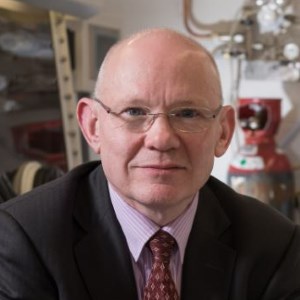
Professor Peter Bruce FRS

Professor Peter Bruce FRS
Peter Bruce is Wolfson Professor of Materials at the University of Oxford. His research interests embrace materials chemistry and electrochemistry, with a particular emphasis on energy storage. Recent efforts have focused on the synthesis and understanding of new cathode materials for lithium and sodium ion batteries, understanding processes in all solid-state batteries and the challenges of the lithium-air battery. His pioneering work has provided many advances.
Peter has received numerous awards, including the Tilden Prize of the RSC, the Carl Wagner Award of the ECS, the Liversidge Award of the RSC and the Hughes Medal of the RS. He has also been recognised as a Highly Cited Researcher by Clarivate Analytics each year since 2015.
Peter is a founder and Chief Scientist of the Faraday Institution, the UK centre for research on electrochemical energy storage. Peter took up the position of Physical Secretary and Vice President of the Royal Society in 2018.
| 23:00 - 23:00 |
The UK Government has committed to increase spending on R&D to £22 billion a year by 2025 and overall investment in R&D to 2.4% of GDP by 2027. It has also outlined its ambition for the UK to become a science superpower, committed to levelling-up the UK and is seeking to ‘build back better’ in response to COVID-19, including a focus on green growth to deliver net-zero by 2050. What does this ambition to increase investment in UK research and innovation mean for Scotland and its people? This roundtable will bring together large and small businesses, universities, colleges, research institutes and national and local policymakers and funders to discuss how research and innovation activity varies across Scotland, and explore strengths and opportunities. Through this discussion, we will seek to identify the limiting factors on research and innovation activity in Scotland as a basis to explore local, national and UK-wide levers that may help boost this. We will also explore how people across Scotland can contribute to and share the benefits of research and innovation. We will share the findings of this discussion to inform ongoing policy and influencing activity. |
|---|
| 23:00 - 23:00 |
This workshop aims to ensure that stories of science are shared with communities in Scotland by exploring the possibilities for collaboration between museums, galleries and STEM organisations. If you work in a museum or gallery you will have the opportunity to meet organisations who can help you develop high quality science content, hear about success stories from Scotland and beyond, and find out about opportunities for funding. If you work for a science organisation you will find out how to work with museums and cultural organisations to create unique, locally relevant projects, how to reach new audiences with your content and meet peers from across the region. To request an invitation to this session please send an email including your name, job title, affiliation and reason for interest in attending. |
|---|
| 23:00 - 23:00 |
Climate change and biodiversity interact in complex ways, with important implications for the future of our environment and society. Tackling these interrelated challenges requires working collaboratively. Scotland, with its unique habitats and history of innovation, is well-placed to address these challenges. From Coast to Countryside will explore how climate change and biodiversity interact, and how projects in Scotland can simultaneously create benefits for ecosystems, the climate and society. The roundtable will bring together representatives from across science, industry, agriculture, economics, the marine environment, and communities in Scotland to highlight successful multidisciplinary case studies that address multifaceted and connected challenges for climate change and biodiversity. This will give representatives from a range of backgrounds an opportunity to share experiences and to discuss the conditions and support needed for success. Beginning with presentations from a selection of case studies on urban, rural and marine initiatives, the meeting will then be opened to all attendees for a plenary discussion to share experiences and insights. This roundtable is being held in partnership by the Royal Society and Royal Society of Edinburgh. From Coast to Countryside will be chaired by Professor Sir Ian Boyd, and include the following opening presentations:
The presentations will be followed by an open plenary discussion in which attendees can share their own experiences and insights. To express interest in joining From Coast to Countryside, please contact leonardo.marioni@royalsociety.org |
|---|
| 11:30 - 11:35 |
Join us for a networking lunch running from 12:30pm to 1:30pm, which will bring together delegates from all of the events taking place during the conference. When you enter the room you will be allocated to a 'table' to watch the speech and have the opportunity to meet and chat with fellow delegates. |
|---|---|
| 11:35 - 11:40 |
Welcome remarks
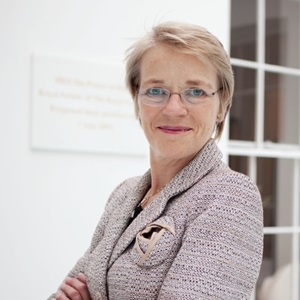
Dame Julie Maxton CBE, Executive Director, The Royal Society

Dame Julie Maxton CBE, Executive Director, The Royal SocietyDame Julie Maxton is the Executive Director of the Royal Society, the first woman in 350 years to hold the post. Before taking up her position at the Royal Society in 2011 Julie was Registrar at the University of Oxford, the first woman in 550 years in the role. She is an Honorary Fellow of University College Oxford, a Bencher of the Middle Temple, a Freeman of the Goldsmith’s Company and a Board member of Sense about Science. In the past she has also been on the Boards of the Alan Turing Institute, Blavatnik School of Government in Oxford, Haberdasher Aske’s School (Elstree), Engineering UK, Charities Aid Foundation and The Faraday Institute. Originally trained as a barrister at the Middle Temple, Julie combined a career as a practising lawyer with that of an academic, holding a number of senior academic positions, including those of Deputy Vice Chancellor, Professor and Dean of the Faculty of Law at the University of Auckland, New Zealand. Academic and other recognition Julie has received include a CBE (2017) and Honorary Degrees from the Universities of Huddersfield, Warwick, Canterbury, Hull and Bristol. She is the author of several books and numerous articles concerned with trusts, equity, commercial and property law. 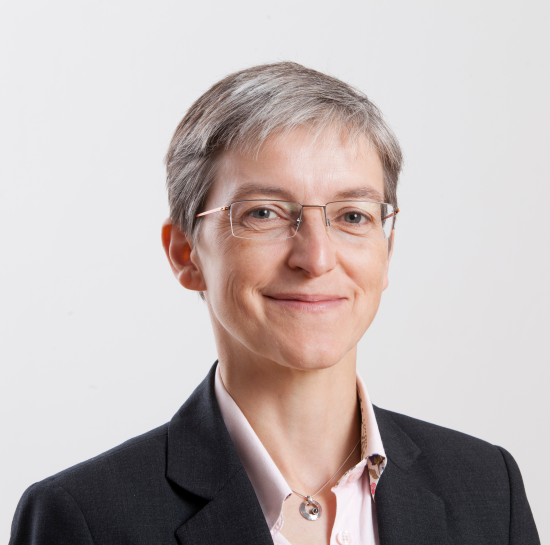
Dr Rebekah Widdowfield, Chief Executive, Royal Society of Edinburgh

Dr Rebekah Widdowfield, Chief Executive, Royal Society of EdinburghRebekah has been Chief Executive of the Royal Society of Edinburgh, Scotland’s National Academy, since September 2017. Rebekah worked in academia for a number of years researching homelessness, rural poverty and social exclusion, before joining the Scottish Government in 2001 to pursue a more applied research career. She became a senior civil servant in 2008 in which capacity she served as Head of Rural and Environmental Science and Analysis and as Chief Researcher with responsibility for social research across Government before moving to policy in 2013 as Head of Higher Education and Science. Rebekah supported a number of strategic advances during her time in Government including: leading development of the first carbon accounting of a financial budget; instigating a climate change behaviours research programme and; establishing and then working with the Commission on Widening Access to support a more holistic approach to enhancing access to university to students from deprived backgrounds. Rebekah is a trustee of the Centre for Homelessness Impact and a member of the Board of Management of City of Glasgow College. |
| 11:40 - 11:50 |
Keynote speech
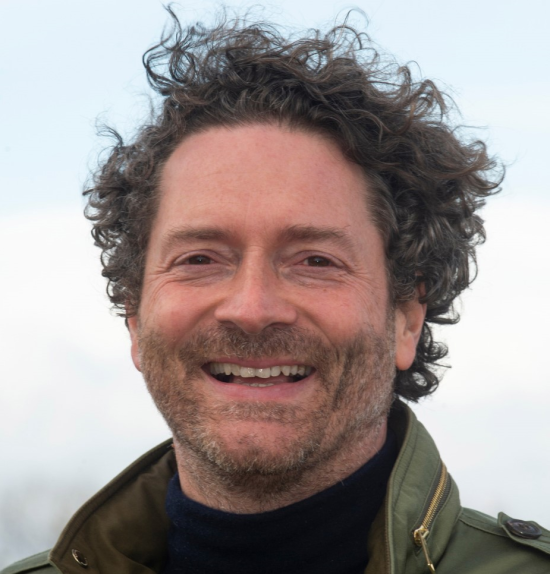
Chris van der Kuyl CBE, co-Founder and Chairman, 4J Studios

Chris van der Kuyl CBE, co-Founder and Chairman, 4J StudiosChris van der Kuyl is one of Scotland’s leading entrepreneurs working across the technology, media, gaming and entertainment sectors. Chris is most notably co-Founder and Chairman of multiple award-winning games developer 4J Studios, best known for developing Minecraft for Microsoft, Sony and Nintendo games consoles. He and fellow co-Founder Paddy Burns launched Chroma Ventures, the investment arm of 4J Studios, in 2021 to consolidate their diverse and growing portfolio of investments. Chris is also Chairman of; Puny Astronaut who are bringing their first game to market; TVSquared, a fast-growing data analytics company; Broker Insights, a start-up insurtech company; and Parsley Box who provide cupboard stored ready meals. He sits on the boards of; Blippar, a technology company specialising in augmented reality (AR); aquaculture technology specialists Ace Aquatec, Stormcloud Games, and independent games development studio and ADV Holdings, developer and operator of Wild Shore water-based adventure sites. Alongside his commercial roles, he was the founding Chairman of Entrepreneurial Scotland and is currently a member of multiple advisory and local charity boards. Elected as one of the youngest Fellows of the Royal Society of Edinburgh in 2013, he has also been awarded honorary degrees from; the University of Dundee; Abertay University, the University of Edinburgh, Edinburgh Napier University and the University of Strathclyde. Chris was formally recognised for his contribution to technology in the Queen’s Birthday Honours List 2020, becoming a Commander of the Most Excellent Order of the British Empire (CBE). |
| 11:50 - 12:30 | Networking |
Chair

Simon Andrews

Simon Andrews
Simon leads Fraunhofer UK Research Ltd and supports Fraunhofer Centre Applied Photonics, based at the University of Strathclyde, in Glasgow. This first UK Fraunhofer centre follows the proven German model of providing professional R&D services to industry, whilst staying connected to excellent research in the university sector.
Fraunhofer CAP is succeeding in its mission to help the UK economy by providing high quality applied R and D in lasers, optical and quantum systems, for industry, with 61 staff and students accelerating innovations for many sectors including life science, environmental monitoring, LIDAR and quantum sensing and communications.
Simon is a physicist and engineer who spent many years in the photonics and medical device industries, often taking innovation from concept to market. His love of excellent science, international collaboration and practical innovation have driven his efforts on both sides, and in the middle, of the technical and commercial 'valley of death'.
He sits on the Royal Society's Science Industry Translation Committee, the Quantum Technology Leadership Group, and the boards of Photonics Leadership Ltd and Technology Scotland Ltd.
| 23:00 - 23:00 |
Keynote Speech
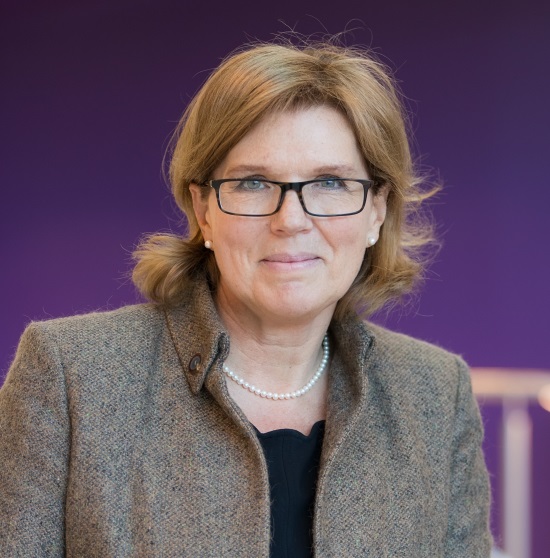
Sherry Coutu CBE, entrepreneur, Chair of Founders4Schools, Workfinder and the Scaleup Institute, UK

Sherry Coutu CBE, entrepreneur, Chair of Founders4Schools, Workfinder and the Scaleup Institute, UKSherry Coutu is a serial entrepreneur and angel investor who serves on the boards of companies, charities, and universities. She is currently a non-executive Director of Pearson plc, London Stock Exchange plc, DCMS and Raspberry Pi Trading. Sherry has decades of experience chairing Remuneration Committees of FTSE plcs, acting as Senior Independent Director and Nominations Committee chair and serving on audit committees. Philanthropically, she supports Founders4Schools, Digital Boost, Raspberry Pi Foundation and Cancer Research UK. Sherry has an MBA from Harvard, an MSc (with distinction) from the London School of Economics, and a BA (Hons with distinction) from the University of British Columbia, Canada. She has been awarded Honourary PhDs from The University of Bristol, Manchester University and the Open University for her work in Education and the Economy. She was appointed Commander of the Most Excellent Order of the British Empire (CBE) for services to entrepreneurship in the New Year's Honours List 2013. |
|---|---|
| 23:00 - 23:00 |
This workshop will explore how science and technology can be used to support economic growth across Scotland, discussing the application of data, science and technology to scale-up businesses and to accelerate business growth. To request an invitation, please send an email to industry@royalsociety.org including your name, job title, affiliation, and reason for interest in attending. |
| 23:00 - 23:00 |
Case Studies
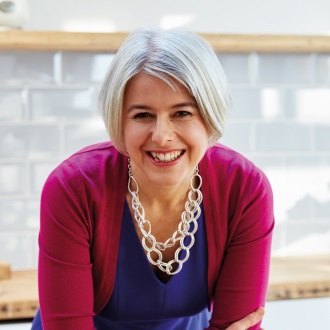
Lucinda Bruce-Gardyne, founder of Genius Foods

Lucinda Bruce-Gardyne, founder of Genius FoodsLucinda Bruce-Gardyne is the creator of the first fresh gluten free bread on the market and Founder of Genius Foods Ltd, the UK’s leading brand in fresh gluten and dairy free bakery products. She is an experienced Executive and Non Executive Board Director, Food Scientist and Ingredient Functionality Expert, Innovator of great tasting gluten and dairy free food, Author, Chef and Mother. Lucinda is dedicated to helping people with dietary restrictions, enjoy a mainstream diet and lifestyle. She is committed to supporting scaling businesses, budding entrepreneurs, and finding sustainable, ground-breaking food solutions to improve public health and well-being. Lucinda is also passionate about the important role science plays in business growth and efficiency. Lucinda is also Royal Society Entrepreneur in Residence at Edinburgh University, Board Director of The Scale Up Institute, and on the Scotland Food and Drink Board. 
Callum Murray, CEO, Amiqus

Callum Murray, CEO, AmiqusCallum Murray is the CEO of Amiqus, an award-winning purpose driven company, helping people get to work on what matters, faster. Amiqus was founded in 2015 after Callum experienced the civil court process first-hand as a litigant and was motivated to help improve access to legal information and support. Amiqus was supported by the RSE Enterprise fellowship programme in 2016, since then, Amiqus' staff and client compliance platform is now trusted by hundreds of organisations across multiple sectors, is accredited and recommended by regulatory bodies across the UK and counts government and the NHS as clients. 
Richard Boyd, CEO, Invizius

Richard Boyd, CEO, InviziusRichard Boyd studied Engineering Science at Oxford in the late 80s with Professor Brian Bellhouse who not only founded Oxford's very successful Institute of Biomedical Engineering, but also the University’s most successful ever spinout, Powderject, which was sold for over £0.5bn. Richard’s career began in naval shipbuilding on the Clyde before an MBA at INSEAD led to management consulting specialised in helping large tech companies across Europe and the US to accelerate their R&D and top-line growth. Afterwards, inspired by Professor Bellhouse, he started consulting to Universities and technology spin-outs in Scotland while looking for opportunities to start a medtech business. In 2010 he co-founded VueKlar Cardiovascular with Professor Andreas Melzer at Dundee, which developed an imaging technology specifically for cardiovascular implants. They came close to exiting the business but ultimately it failed. Undeterred, in 2018 he co-founded Invizius with Dr Andy Herbert from Edinburgh University. They have just completed a £5.3m Series A investment round to get into the clinic in 2023 with their kidney dialysis product. 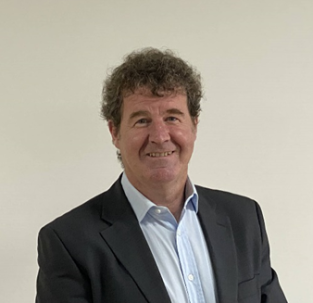
Neil Martin, CEO and Founder, Vector Photonics

Neil Martin, CEO and Founder, Vector PhotonicsNeil Martin is CEO and a founder of Vector Photonics, a producer of PCSEL-based surface emitting semiconductor lasers – acknowledged as the most significant innovation in laser design and manufacture for 30 years. Vector Photonics is a spin out of the University of Glasgow. Its broad wavelength range PCSELs are low cost, robust, and high power – a combination of key characteristics which gives a huge advantage over current semiconductor laser technologies. Neil led Vector Photonics to achieve a £1.6m equity investment, alongside government funding, taking its total seed funding round to over £4m. Previously, Neil was CEO and founding member of CST Global, a compound semiconductor fab. This was another successful spin out of the University of Glasgow, which he exited to a Swedish quoted company in 2017. Neil has held senior marketing and design roles in blue-chip, semiconductor companies. He has a background in design, international product management and marketing. |
| 23:00 - 23:00 |
This meeting will focus on international scientific collaboration and will bring together stakeholders from the scientific and political communities across Scotland to discuss the consequences of Brexit on international scientific collaboration, what this means for UK science and how the UK can address this challenge in future. |
|---|
Chair

Professor Andrew Blake FREng FRS, The Alan Turing Institute

Professor Andrew Blake FREng FRS, The Alan Turing Institute
Andrew Blake is an engineer whose innovative work on image analysis has made it possible for computers to react to the world around them based on the visual data they receive. His research has focused particularly on the accurate tracking of motion and the reconstruction of surfaces from reflected light.
Amongst his many contributions to the field, he is perhaps best known for the development of the condensation algorithm — the first tool that allowed computers to correctly interpret complex motion. As the Managing Director of Microsoft Research Cambridge, Andrew was also part of the team behind the company’s Kinect controller — a revolutionary gaming system capable of following instructions dictated by the body movements of its users.
The recipient of the Silver Medal and MacRobert Award of the Royal Academy of Engineering, Andrew has also won the prestigious Mountbatten Medal from the Institution of Engineering and Technology. In 2010, he was elected to the council of the Royal Society.
| 23:00 - 23:00 |
The Mathematical Futures programme seeks to understand what mathematical competences will be needed by citizens in the future to lead fulfilling lives and to be successful in their careers, and how education systems should change so that young people are equipped with these competences. This event will debate how education could be shaped in the future to enable richer experiences for all children and the links between mathematics (defined broadly) and other disciplines. The event will be chaired by Professor Andrew Blake FRS and include interactive breakout sessions and presentations from Sir David Spiegelhalter OBE FRS, Anthony Tomei CBE, Professor Bencie Woll FBA FAAAS and Professor Quintin Cutts who will be presenting their views on these topics. |
|---|
| 15:00 - 16:00 |
The event will begin with introductory talks on the topic of 'Neural Interfaces & the Future of Gaming' from the perspective of both gaming and neuroscience. There will then be a Q&A session where audience members can ask questions to our speakers and panellists. 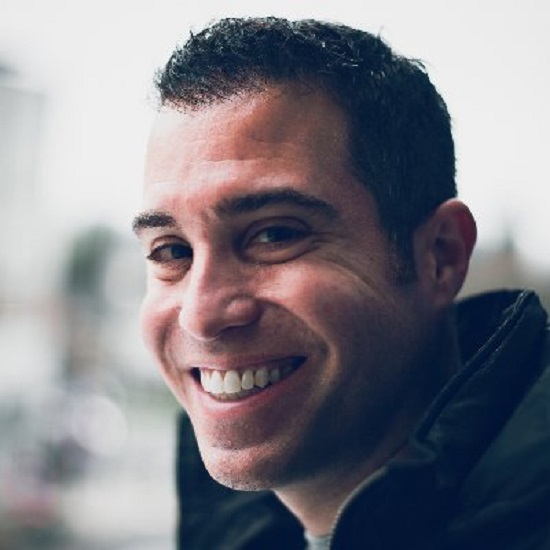
Mike Ambinder, Principal Experimental Psychologist, Valve Corporation

Mike Ambinder, Principal Experimental Psychologist, Valve CorporationMike Ambinder is a Principal Experimental Psychologist at Valve Corporation. He has BA in Computer Science and Psychology from Yale University and a PhD in Psychology from the University of Illinois. At Valve since 2008, he works on the application of psychological knowledge and methodologies to game design, statistical analysis and machine learning approaches, and basic research into Brain-Computer Interfaces. 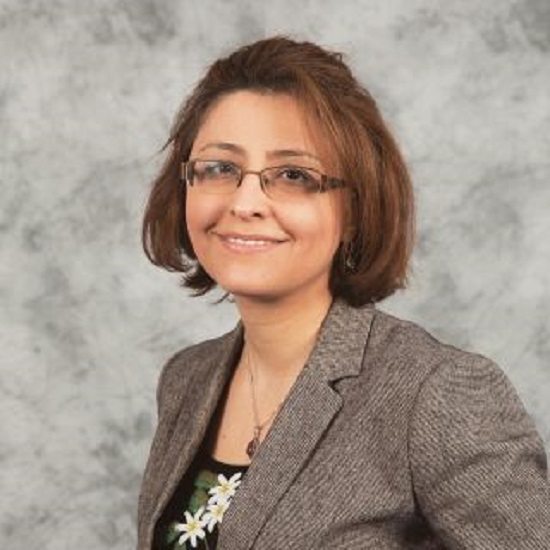
Dr Mahnaz Arvaneh, University of Sheffield

Dr Mahnaz Arvaneh, University of SheffieldMahnaz received a PhD on Advanced Brain-computer Interface from Nanyang Technological University (NTU), Singapore in 2013. From 2009 to 2013, she was also an attached researcher at the Institute for Infocomm Research, Agency for Science, Technology and Research, Singapore. Thereafter, she moved to University College Dublin where she worked as a lecturer in Biomedical Engineering in 2013. From 2014 to 2015, Mahnaz worked as a research fellow in the Trinity College Institute of Neuroscience. Since September 2015, she has been a lecturer in the Department of Automatic Control and Systems Engineering at the University of Sheffield. Mahnaz’ expertise is in Brain-computer interface, neural signal processing, and their applications in monitoring and enhancing physical and mental health. She is the director of Physiological Signals and Systems Laboratory at University of Sheffield. Her work on neural interfaces has received high-profile media coverage, e.g. BBC Tech Tent, BBC Radio 4, Sky News, etc. She has published more than 50 highly cited papers in both engineering and neuroscience top-ranked journals and conferences. Since March 2018, she has been serving as an associate editor in IEEE transactions on Neural Systems and Rehabilitation Engineering. She also co-edited a book on brain-computer interface in IET, and contributed in Royal Society Neural Interfaces Perspective, launched in September 2019. |
|---|---|
| 16:00 - 17:00 |
Participants will be moved into breakout groups to learn about each other's work and to discuss future applications for neural interfaces and gaming, opportunities for and barriers to collaboration, and ethical issues that could arise in the future. After this, there will be an open plenary discussion with all participants. |
| 23:00 - 23:00 |
A recent Royal Society report, iHuman, explored the long term potential and risks of neural interface technologies. This workshop will explore questions such as: what opportunities for collaboration exist between gaming companies and scientists working on neural interfaces? What are the ethical implications of using neural interfaces in gaming? If you would like to attend, please email emergingtech@royalsociety.org with a short explanation as to why you are interested in attending. |
|
This virtual roundtable discussion will launch the latest Primer for the Courts, part of the Royal Society’s Science and the Law programme designed to provide accurate, readily understood science to the judiciary. The primers project is a unique collaboration between members of the judiciary, the Royal Society and the Royal Society of Edinburgh. Delegates will be invited to give feedback on the utility of the primers and make suggestions for future topics. |
|
| 16:30 - 16:35 |
Welcome remarks
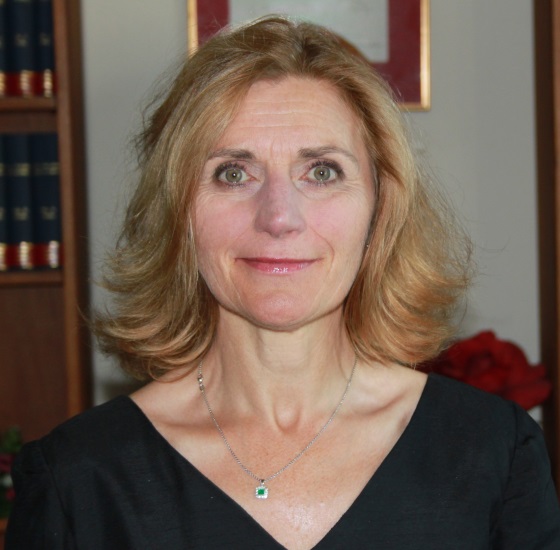
Dame Anne Rafferty

Dame Anne RaffertyDame Anne Rafferty DBE retired from the Court of Appeal of England and Wales in July 2020. She was called to the Bar in 1973, practiced in criminal law, took Silk (made a QC) in 1990 and was elected a Bencher of Gray’s Inn in 1998. She was appointed a Recorder in 1991, a Deputy High Court Judge in 1996 and a Judge of the High Court (Queens Bench Division) in 2000. Dame Anne was the Presiding Judge of the South Eastern Circuit between 2003 and 2006, was appointed a Lord Justice of Appeal and made a Privy Counsellor in 2011. She was Vice Chairman of the Judicial Appointments Commission from 2017-2020 and she chaired the Judicial College from 2014 to 2020. She now chairs the Royal Society’s steering committee on judicial primers, part of the Science and the law programme. She is also a member of the King’s Counsel Appointments panel (applications for Silk), is a member of the Judicial Appointments Commission’s outreach scheme to encourage appointments to the judiciary which embrace diversity and is the Inspector of the Iraq Fatality Investigations. She has been Chancellor of the University of Sheffield since 2015. |
| 16:35 - 16:40 |
Introduction to the Science and the Law Programme

Dame Julie Maxton CBE, Executive Director, The Royal Society

Dame Julie Maxton CBE, Executive Director, The Royal SocietyDame Julie Maxton is the Executive Director of the Royal Society, the first woman in 350 years to hold the post. Before taking up her position at the Royal Society in 2011 Julie was Registrar at the University of Oxford, the first woman in 550 years in the role. She is an Honorary Fellow of University College Oxford, a Bencher of the Middle Temple, a Freeman of the Goldsmith’s Company and a Board member of Sense about Science. In the past she has also been on the Boards of the Alan Turing Institute, Blavatnik School of Government in Oxford, Haberdasher Aske’s School (Elstree), Engineering UK, Charities Aid Foundation and The Faraday Institute. Originally trained as a barrister at the Middle Temple, Julie combined a career as a practising lawyer with that of an academic, holding a number of senior academic positions, including those of Deputy Vice Chancellor, Professor and Dean of the Faculty of Law at the University of Auckland, New Zealand. Academic and other recognition Julie has received include a CBE (2017) and Honorary Degrees from the Universities of Huddersfield, Warwick, Canterbury, Hull and Bristol. She is the author of several books and numerous articles concerned with trusts, equity, commercial and property law. 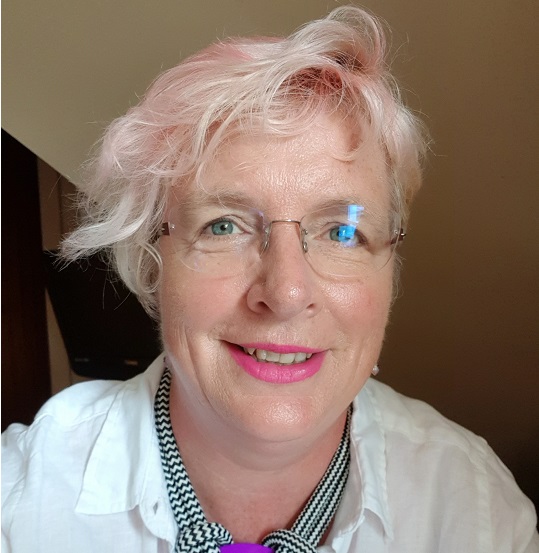
Professor Sarah Skerratt

Professor Sarah SkerrattProfessor Sarah Skerratt is Chief Executive of the Royal Society of Edinburgh (RSE). A familiar face to the RSE, having been the Director of Programmes for two years, heading up research, international, enterprise, policy, public engagement, Fellowship and Young Academy teams. She also delivers to the ‘Inclusive Public Service’ workstream of the RSE’s Post-Covid Futures Commission. Prior to this, Sarah was Director of Policy Engagement at Scotland’s Rural College (SRUC), where she worked for just over two decades. Sarah is Professor of Rural Society and Policy. For 30+ years, Sarah has researched rural community resilience, disempowerment, poverty and rural mental health. She has enhanced rural and national policies and made a difference in rural communities via robust data, particularly lived-experienced evidence. Sarah works with Scottish Government task forces, Scottish and UK Parliaments, universities, private, public and third sectors, communities and development agencies in Scotland and internationally. Following a two-year secondment with Audit Scotland, Sarah is retained as their rural adviser, having established their Islands Forum in 2017. Sarah is Scientific Director of the Scottish Consortium for Rural Research (SCRR). She is on the Advisory Board of the Institute for Advanced Studies in the Humanities (IASH), a member of the International Network on Social Disadvantage in Rural Peripheries, member of the Scottish Advisory Group of the OECD Rural Innovation Programme, Partner in Scotland’s Social Action Inquiry, member of the Farming for 1.5 Independent Inquiry and a founding member of the National Rural Mental Health Forum. Sarah’s charity Board appointments have included: Rural Housing Scotland and Scotland’s Regeneration Forum. She was also on the Board of Scotland’s Rural College (SRUC). |
| 16:40 - 16:55 |
Introductions to recent Primers
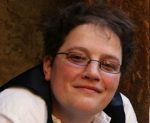
Professor Niamh NicDaeid FRSE

Professor Niamh NicDaeid FRSEProfessor Niamh Nic Daeid is a Chartered Chemist and authorised forensic scientist. She is a Professor of Forensic Science and Director of the Leverhulme Research Centre for Forensic Science at the University of Dundee. She is a Fellow of the Royal Society of Edinburgh and holds fellowships of the Royal Society of Chemistry, the Chartered Society of Forensic Science, the Institute of Chemistry of Ireland, the Royal Statistical Society and the UK Association of Fire Investigators. She has held leadership positions with the European Network of Forensic Science Institutes (ENFSI) as a past chair of the fire and explosion investigation working group and as vice chair of the scientific advisory board of the International Criminal Court for six years. She is a forensic expert advisor to the United Nations Office of Drugs and Crime (UNODC) and is also vice chair of the Dundee Drugs Commission investigating drug related deaths in Dundee. 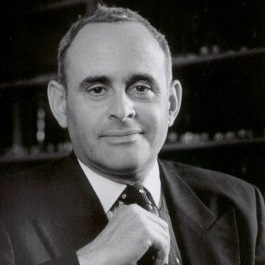
Clement Goldstone QC

Clement Goldstone QCClement was called to the Bar in 1971, having read Law at Cambridge. After a general practice at the Junior Bar, he became a QC in 1993, specialising in heavy criminal cases and licensing law. He became a Circuit Judge in 2002, was authorised to sit at the Central Criminal Court [2006] and the Court of Appeal [Criminal Division] [2009], before being appointed a Senior Circuit Judge and Honorary Recorder of Liverpool in 2011, in which capacity he sat until his retirement in 2019. He received an Honorary Fellowship [Law] from Liverpool John Moores University in 2016, and was Autumn Reader of Middle Temple in 2020. In 2020, he was appointed by the Home Secretary to chair the Jermaine Baker Inquiry [into a fatal police shooting]. He considers it a great honour to have been asked to chair the Editorial Board which has overseen the authorship, and now the publication of the Primer on Ballistics. 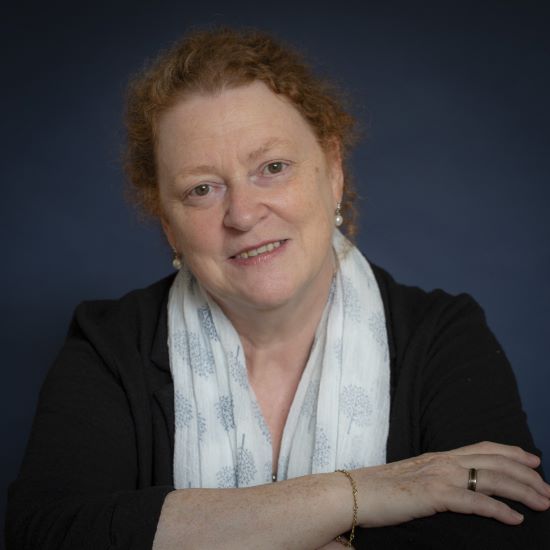
Professor Dame Sue Black DBE FRSE FBA FRS

Professor Dame Sue Black DBE FRSE FBA FRSBaroness Black is the Pro Vice Chancellor for Engagement at Lancaster University. She is a forensic anthropologist, an anatomist and President of the Royal Anthropological Institute. She is a fellow of the Royal Society of Edinburgh, a Fellow of the Royal Anthropological Institute, a Fellow of the Royal College of Physicians (Edinburgh), a Fellow of the Royal Society of Biology, a Fellow of the British Academy and a chartered forensic anthropologist. She was awarded an OBE in 2001 for her services to forensic anthropology in Kosovo and a DBE in 2016 for her services to forensic anthropology and education. 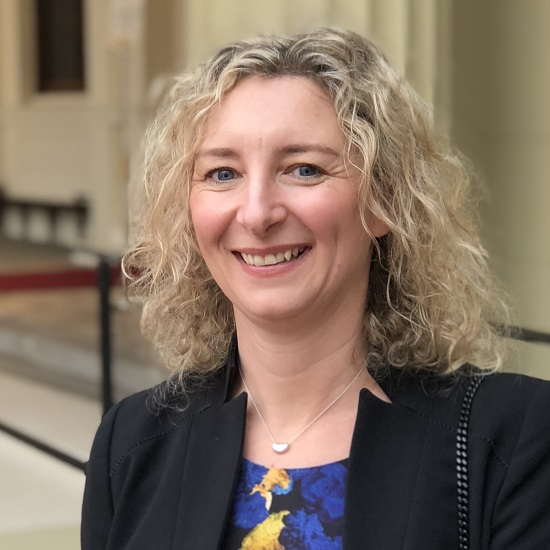
Dame Amanda Yip DBE, High Court Judge, England and Wales

Dame Amanda Yip DBE, High Court Judge, England and WalesAmanda was born and raised in Liverpool before studying law at Cambridge. She was called to the Bar in 1991, and returned to practise in Liverpool, developing a broad common law practice covering crime, family and civil cases before specialising in high value personal injury claims and clinical negligence work. She became a QC in 2011. Her practice at the Bar regularly involved detailed consideration of complex medical and scientific evidence. Amanda was appointed to the High Court Bench in October 2017. She sits in the Queen’s Bench Division and tries serious criminal and civil cases. She is currently a Presiding Judge of the Northern Circuit and Director of Civil Training for the Judicial College. She has enjoyed working on the Forensic Collision Investigation Primer which is nearing publication. |
| 16:55 - 17:30 | Discussion |
| 23:00 - 23:00 |
Hear from the Royal Society and Royal Society of Edinburgh’s grants teams about the funding opportunities available to UK-based and international researchers from postdoctoral fellowships to senior professorships. The speakers will provide advice on developing competitive grant applications and answer questions from the audience about all aspects of applying for funding from both organisations. The speakers will be joined by current researchers supported by both organisations who will give their views on applying for and holding grant funding from the Royal Society and Royal Society of Edinburgh. To attend, please sign up via Eventbrite. |
|---|
Chair
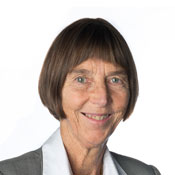
Dame Sue Ion GBE FREng FRS

Dame Sue Ion GBE FREng FRS
Dame Sue Ion GBE FRS FREng is Hon President of the National Skills Academy for Nuclear. She was previously Chairman of the UK Nuclear Innovation Research Advisory Board (NIRAB). She represents the UK on a number of international review and oversight committees for the nuclear sector including the Euratom Science and Technology Committee which she chaired until late 2018. She was the only non-US member of the US Department of Energy’s Nuclear Energy Advisory Committee on which she has served from 2005-2020.She currently serves as a member of the Office of Nuclear Regulation Independent Advisory Panel.
Sue spent 27 years with British Nuclear Fuels Ltd (BNFL) rising to the position of Chief Technology Officer in 1992, a post she held until 2006 when she assumed a number of mainly voluntary roles in Science and Engineering, including membership of the UK Council for Science and Technology and the Engineering and Physical Sciences Research Council (EPSRC). She was Vice President of the Royal Academy of Engineering 2002-2008 and chaired its MacRobert Committee 2013-2019. Sue was Deputy Chair of the Board of the University of Manchester until September 2018 and currently serves on the Board of the University of Central Lancashire.
Her core expertise is in materials science and engineering associated with the nuclear sector. Sue is a member of the Chief Scientific Advisor for Wales’s Science and Innovation Advisory Council. She has been a Visiting Professor in the Department of Materials at Imperial College since 2006, holds an Honorary Professorship at the University of Manchester and is now Chair of the Royal Society Science, Industry and Translation Committee.
| 14:00 - 14:05 |
Welcome remarks

Dame Sue Ion GBE FREng FRS

Dame Sue Ion GBE FREng FRSDame Sue Ion GBE FRS FREng is Hon President of the National Skills Academy for Nuclear. She was previously Chairman of the UK Nuclear Innovation Research Advisory Board (NIRAB). She represents the UK on a number of international review and oversight committees for the nuclear sector including the Euratom Science and Technology Committee which she chaired until late 2018. She was the only non-US member of the US Department of Energy’s Nuclear Energy Advisory Committee on which she has served from 2005-2020.She currently serves as a member of the Office of Nuclear Regulation Independent Advisory Panel. Sue spent 27 years with British Nuclear Fuels Ltd (BNFL) rising to the position of Chief Technology Officer in 1992, a post she held until 2006 when she assumed a number of mainly voluntary roles in Science and Engineering, including membership of the UK Council for Science and Technology and the Engineering and Physical Sciences Research Council (EPSRC). She was Vice President of the Royal Academy of Engineering 2002-2008 and chaired its MacRobert Committee 2013-2019. Sue was Deputy Chair of the Board of the University of Manchester until September 2018 and currently serves on the Board of the University of Central Lancashire. Her core expertise is in materials science and engineering associated with the nuclear sector. Sue is a member of the Chief Scientific Advisor for Wales’s Science and Innovation Advisory Council. She has been a Visiting Professor in the Department of Materials at Imperial College since 2006, holds an Honorary Professorship at the University of Manchester and is now Chair of the Royal Society Science, Industry and Translation Committee. |
|---|---|
| 14:05 - 14:15 |
Changing times for innovation
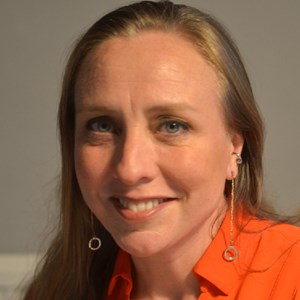
Dr Alicia Greated

Dr Alicia GreatedAlicia has played a key role in developing strategy and allocating funding for UK research and innovation in the UK and overseas. She has led on developing UK research funding collaborations with India, China and other emerging economies. She has also initiated and developed numerous major cross-disciplinary and industry-academia research partnerships. Alicia was the CEO of the Knowledge Transfer Network (now Innovate UK KTN) from 2019 until April 2023. KTN is the UK's foremost networking organisation for business-led innovation, engaging with over 7,000, innovation-led companies, and networking nearly a quarter of a million innovators to accelerate their innovation outcomes. Previously Alicia was Global Director, Research Engagement at Heriot-Watt University and prior to that, led delivery of the Newton Fund £735million global research and innovation fund on behalf of BEIS (now BIS), UK government. She was also founder and Director of Research Council UK (RCUK) India at the British High Commission in Delhi, and Director of RCUK China at the British Embassy in Beijing. She has worked as acting Director of Research for the Arts and Humanities Research Council (AHRC) and was Head of Engineering at the Engineering and Physical Sciences Research Council (EPSRC). Alicia is a Fellow of the Institution of Engineering and Technology and has advised on several Board and committees including the UK Government's Jet Zero Council and the Scottish Funding Council's Research and Knowledge Exchange Committee. Alicia is a member of the Royal Society's Science, Industry and Translation Committee. |
| 14:15 - 14:35 |
Experience from award holders
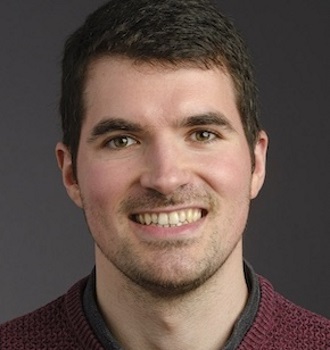
Dr Stefano Albrecht, University of Edinburgh, UK

Dr Stefano Albrecht, University of Edinburgh, UKDr. Stefano Albrecht is Lecturer in Artificial Intelligence in the School of Informatics, University of Edinburgh, where he leads the Autonomous Agents Research Group (http://agents.inf.ed.ac.uk). He is a Royal Society Industry Fellow working with UK-based company FiveAI to research and develop AI technologies for autonomous vehicles. 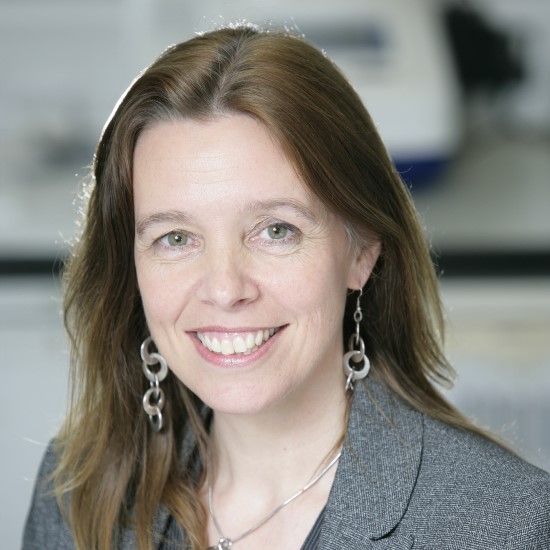
Dr Caroline Barelle, CEO & Founder, Elasmogen

Dr Caroline Barelle, CEO & Founder, ElasmogenCaroline Barelle is the CEO of Elasmogen, a Biotech company based in Aberdeen. She is an RSE Enterprise Fellow and RS Entrepreneur in Residence at Queen's University Belfast. |
| 14:35 - 15:30 | Discussion |
| 23:00 - 23:00 |
The Royal Society and the Royal Society of Edinburgh will jointly host a networking event that will bring together scientists and entrepreneurs supported by the RS and RSE Enterprise and Innovation schemes. Breakout discussions will help connect individuals and explore ways to build collaborations across the UK. |
| 23:00 - 23:00 |
This roundtable, in partnership with the Royal Society of Edinburgh, will explore aspects such as existing and potential uses of data that can help achieve net zero across multiple sectors in Scotland, needs in terms of data infrastructure and skills, and government and industry collaborations. 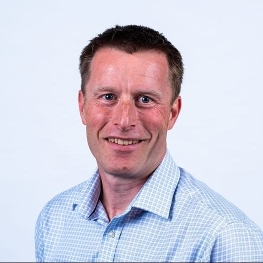
Roger Halliday, Chief Statistician, The Scottish Government and Interim CEO of Research Data Scotland

Roger Halliday, Chief Statistician, The Scottish Government and Interim CEO of Research Data ScotlandRoger Halliday is the Scottish Government's Chief Statistician. He started as Chief Statistician in November 2011 and worked as the Chief Data Officer in Scottish Government up to March 2020 when he took a role leading the Government’s Covid Analysis Team. He qualified with a degree in statistics in 1993 from St Andrews University and joined the Government fast stream as an assistant statistician. He worked for various UK Government Departments and at the Scottish Government in a number of statistical and policy making roles. He currently leads Research Data Scotland, which was established in 2020 to enable innovation in the public good through access and linkage of data around people, places and businesses. 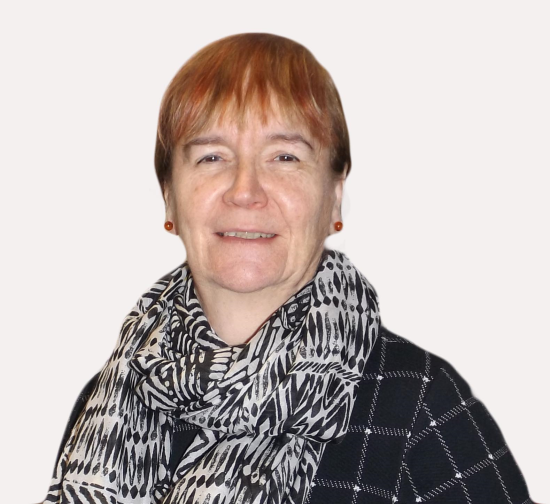
Professor Marian Scott FRSE, University of Glasgow

Professor Marian Scott FRSE, University of GlasgowMarian Scott is Professor of Environmental Statistics in the School of Mathematics and Statistics at the University of Glasgow; an elected member of the International Statistical Institute (ISI), a Fellow of the Royal Society of Edinburgh (RSE) and a chartered statistician of the Royal Statistical Society (RSS). She is a member of the Joint Nature Conservation Committee (JNCC), a member of the EU Scientific Committee on Health, Environment and Emerging Risks (SCHEER) and a board member of the Isaac Newton Institute and was the vice president (International) of RSE 2016-2019. She is also a member of the board of the International Centre for Mathematical Sciences (ICMS) and the newly formed NERC Advisory Network. Marian’s research interests include model uncertainty and sensitivity analysis; modelling the dispersal of pollutants in the environment (including air and water quality), the science of measurement (specifically radiocarbon dating) and assessment of animal welfare. She was awarded an OBE in 2009 for services to science and won the Barnett award of the RSS in 2019. 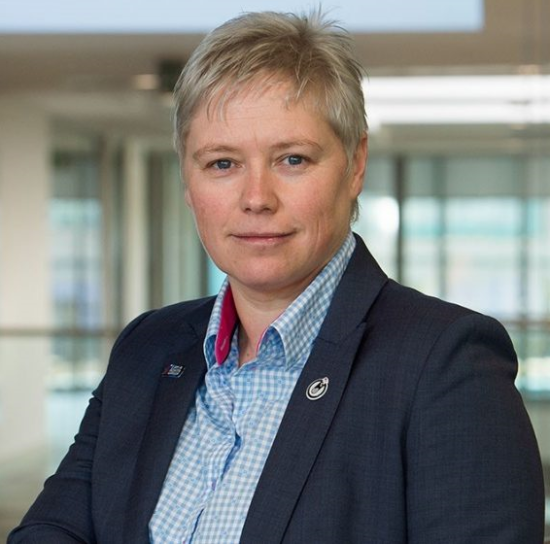
Gillian Docherty OBE, Chief Executive Officer, The Data Lab

Gillian Docherty OBE, Chief Executive Officer, The Data LabGillian Docherty is chief executive of The Data Lab, an innovation centre with a mission of maximising the value for Scotland from data. The Data Lab facilitates partnerships between industry and academia, supporting data science and artificial intelligence projects as well as funding and running first class, ground-breaking education programmes. Gillian is passionate about the opportunity for using Data to drive economic and social benefits. Formerly of IBM, Gillian is a visiting professor at Robert Gordon University, a TED speaker and was named Digital Leader 2018 for the UK. Gillian was named CEO of the year at the Digital Technology Awards 2017 and was also in the UK’s top ten most influential people in data according to DataIQ. Gillian is on the Board of Glasgow Chamber of Commerce, a trustee of Beyonder Involve Charity and an Industry advisor to Previse. Gillian has a degree in Computing Science from the University of Glasgow, an Honorary Doctorate from Robert Gordon University and is married with a daughter. 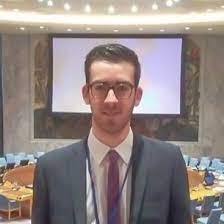
David Kelly, Policy Manager, SCDI

David Kelly, Policy Manager, SCDIDavid Kelly has been with the Scottish Council for Development and Industry (SCDI) – a ‘think-and-do tank’ representing a unique coalition of the private, public and third sectors – since 2018. He has been responsible for leading collaborative research projects and authoring major reports on climate change, technological disruption, public health and the future of work. He is currently working on a report in partnership with BT on the role digital technologies can play in achieving net zero. David joined SCDI from Stirling Council, where he was Business Management and Improvement Officer with responsibility for the local authority’s Participatory Budgeting and Priority Based Budgeting programmes. Prior to that, he worked for the United Nations Division for Palestinian Rights in New York City, and wrote for a multilingual, pan-European journal of politics, international relations and culture based in Hamburg. He studied Politics at the University of Edinburgh, receiving the School of Economics Prize, the Simon Gray Prize for International Relations and the Simon Gray Prize for Politics, before graduating with a first-class honours degree in 2016. |
|---|
| 23:00 - 23:00 |
Together the Royal Society and the Royal Society of Edinburgh will host a regional network meeting bringing together research fellows from both Societies based in Scotland. Facilitated by guest speakers the session will center around what makes university and academic research environments inclusive and collaborative, as well as what universities and funders can do to support the wellbeing of their award holders. |
|---|
|
The Industry leaders' dinner will take place at a later date. Business leaders and Fellows of the Royal Society will discuss the scientific and industrial landscape in Scotland focusing on topics critical to the successful application of science for societal and economic benefit. For more information, please email industry@royalsociety.org. |
